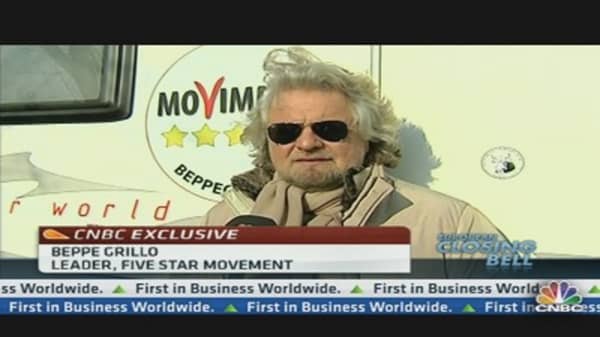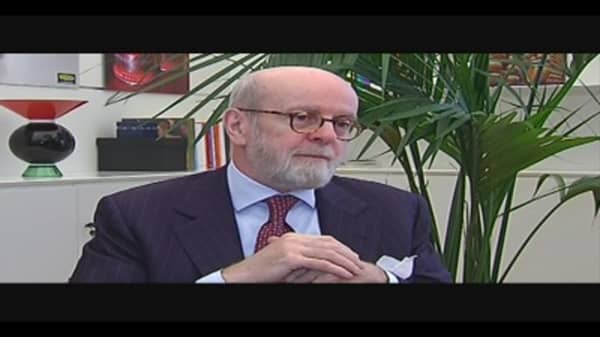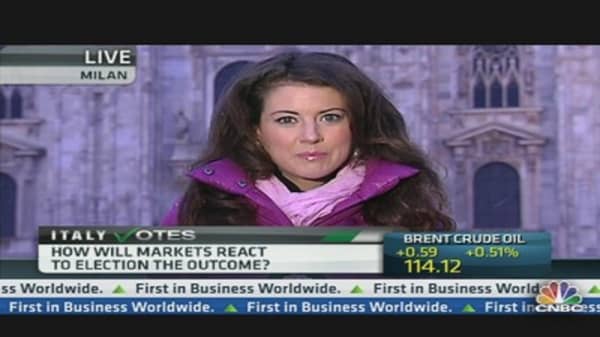The streets of Milan where deserted on Saturday night in a blow to the Italian fashion industry which has taken over the city for the annual Milan Fashion Week. While the hotels and bars where buzzing, the Milanese kept out of the rain and had a last think about who to vote for in a nail-biter of an election.
It is easy to say that the outcome of Sunday's and Monday's election has been thrown into doubt by one man, Beppe Grillo. The leading face in the 5-Star movement, Grillo has burst onto the scene and according to a number of private opinion polls seen by CNBC is now second behind the centre-left front runner Pier Luigi Bersani. Officially, there has been a blackout on opinion polls since February 9, but private polls still circulate.
Grillo has said he will not lead the party if it were to win the election because party rules ban anyone who has been convicted of a crime. Grillo was convicted of manslaughter in 1980 after he was involved in a car accident that left three people dead.
(Read More: Italy Election Goes Down to the Wire)
Nonetheless, the 64-year old comedian is definitely changing the game in Italian politics. His rally on Tuesday night in Milan felt more like a rock concert than a political event until the man himself swept onto stage to deliver what, as a non-Italian speaker, I can only describe as an electric performance.


.530x298.jpg?v=1361718030)




